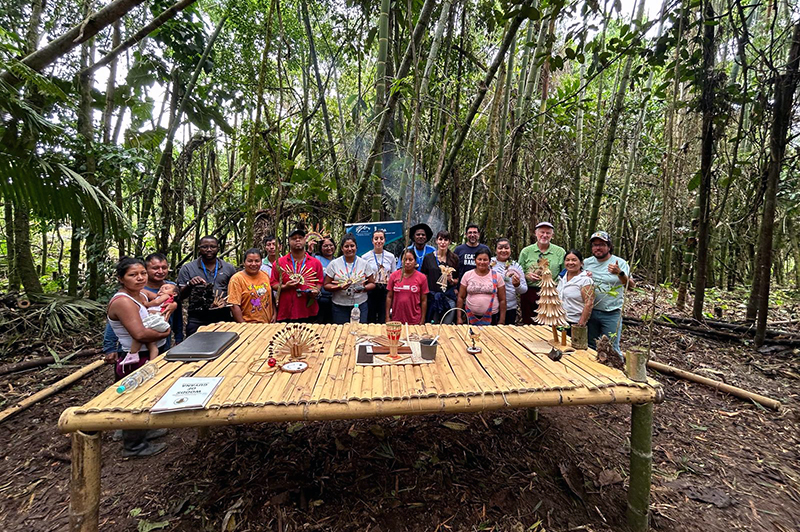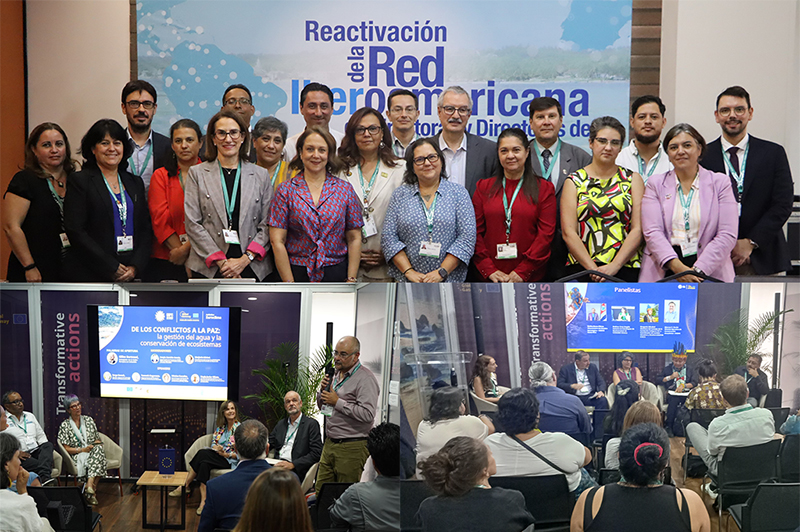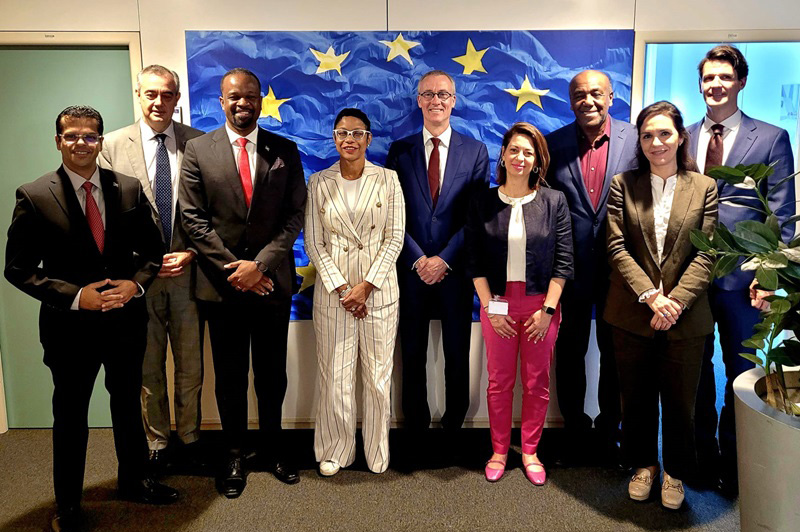- Representantes de Bolivia, Chile, Colombia, Costa Rica, Ecuador, México y Perú participarán de una capacitación para que las ciudades impulsen los objetivos iniciados con el Acuerdo de París.
- Tras la adhesión al Pacto Global de Alcaldes, los gobiernos locales tienen tres años para presentar su Plan de Acción Climático y de Energía Sostenible (SECAP, por sus siglas en inglés).
Lima, Peru, August 20, 2018. Within the framework of the International Program for Urban Cooperation, European Union-Latin America and the Caribbean, two training workshops will be held for the national coordinators of the Global Covenant of Mayors for Climate and Energy (GCoM). Both events will be facilitated by the Joint Research Center of the European Commission (JRC) with the support of other related entities.
The first meeting will take place in Lima, Peru from August 20 to 23 at the Hotel Señorial. The participation of representatives from Bolivia, Chile, Ecuador and Peru is expected. Days later, from August 27 to 30, the second workshop will be held in San José, Costa Rica at the Tryp-Sabana Hotel, with attendees from Colombia, Costa Rica and Mexico.
"Both workshops are an opportunity for cities to set ambitious goals, form lasting partnerships, test new solutions and promote their international profiles," said Manuel Fuentes, director of the IUC-LAC Program.
The coalition of the Global Covenant of Mayors for Climate and Energy (GCoM) is the largest global alliance of cities and local governments voluntarily committed to the fight against climate change. It covers more than 7,400 cities in 119 countries on six continents.
About 81% of the population of Latin America resides in cities (UN DESA, 2018) and these represent 70% of the total world emissions related to energy. Faced with this situation, the GCoM, under the umbrella of the International Urban Cooperation Program (IUC) financed by the European Union, seeks to establish itself in several parts of the world, including Latin America and the Caribbean. That is why, in both workshops, the GCoM National Coordinators of the participating countries will be trained, along with the representatives of the Emblematic Cities chosen to develop their " Sustainable Energy and Climate Action Plans" (SECAP).
The objective is to align the SECAPs with the NDCs and build capacity for National Coordinators to support other Covenant signatory cities in developing SECAPs in their own countries.
The workshops in Lima and San José are organized in collaboration with EUROCLIMA+, another flagship programme of the European Union which, through its Climate Governance component, will participate with a training module that aims to guide the inclusion of a vertical coordination approach for effective progress in the implementation of the NDC, involving the subnational level and achieving two-way communication with the national level. This collaboration between IUC and EUROCLIMA+ is expected to find mechanisms and improve processes that will allow alignment of SECAPs with the NDCs of their respective countries.
"The important thing is to produce a methodology and a roadmap for other cities to produce SECAPs aligned with their NDCs," said Manuel Fuentes.
Any city in the world with a democratically elected government, no matter its size or location, can voluntarily join the Global Covenant of Mayors for Climate and Energy in Latin America and the Caribbean (GCoM-LAC).
Inauguration
The workshops in Lima will be inaugurated by Environment Minister Fabiola Muñoz. In addition, there will be the presence of authorities of the PCM[??] and other organizations such as Ciudades por la Vida, AMPE, GIZ, IDB, Universidad Nacional San Antonio de Abad de Cusco, and Ciudad Saludable. In addition, Lima districts and local governments from the interior of the host country will participate.
Conclusions, Lima, Perú
Contacto con prensa
Manuel A. Fuentes, director del Programa IUC-LAC: This email address is being protected from spambots. You need JavaScript enabled to view it.
Acerca del Programa IUC-LAC
El Programa Internacional de Cooperación Urbana (IUC), de tres años de duración, pretende apoyar a ciudades en distintas regiones del globo a conectarse y compartir soluciones para problemas comunes en desarrollo urbano sostenible. Financiadas por la Unión Europea, las actividades del Programa Internacional de Cooperación Urbana (IUC) darán soporte al logro de objetivos políticos tanto a nivel local como relacionados con importantes acuerdos internacionales sobre desarrollo urbano sostenible y cambios climáticos, como la Nueva Agenda Urbana, los Objetivos de Desarrollo Sostenible y el Acuerdo de París. El IUC-LAC (América Latina y el Caribe) es la vertiente más amplia del programa en el mundo. Para más información: http://iuc-la.eu/
Acerca del Pacto Mundial de Alcaldes por el Clima y la Energía
El Pacto Global de Alcaldes por el Clima y la Energía reúne formalmente el Compact of Mayors y el Covenant of Mayors de la UE, las dos principales iniciativas de ciudades para ayudar a las ciudades y gobiernos locales en su transición hacia una economía baja en carbono y demostrar su impacto global. Dirigido por el Enviado Especial del Secretario General de las Naciones Unidas para Ciudades y Cambio Climático, Michael R. Bloomberg, y el Vicepresidente de la Comisión Europea, Maroš Šefčovič, la coalición comprende más de 7,400 ciudades en 6 continentes y 119 países, que representan más de 684 millones de personas o 9.31% de la población mundial. Obtenga más información en http://pactodealcaldes-la.eu.El Pacto Global de Alcaldes por el Clima y la Energía de América Latina y el Caribe - es el capítulo para América Latina y el Caribe que trabaja para establecer el Pacto Global en la región.
Programa EUROCLIMA+
Es el Programa insignia de la Unión Europea para promover el desarrollo ambientalmente sostenible en 18 países de América Latina, en particular para el beneficio de las poblaciones más vulnerables. EUROCLIMA+ se fortalece con la participación de las siguientes agencias implementadoras: Agencia Española de Cooperación Internacional (AECID), Agencia Francesa de Desarrollo (AFD), Comisión Económica para América Latina (CEPAL), Agencia Francesa para la Cooperación Técnica Internacional (Expertise France), Fundación Internacional y para Iberoamericana de Administración y Políticas Públicas (FIIAPP), Sociedad Alemana para la Cooperación Internacional (GIZ) y ONU Medio Ambiente. Para mayor información: www.euroclimaplus.org.




